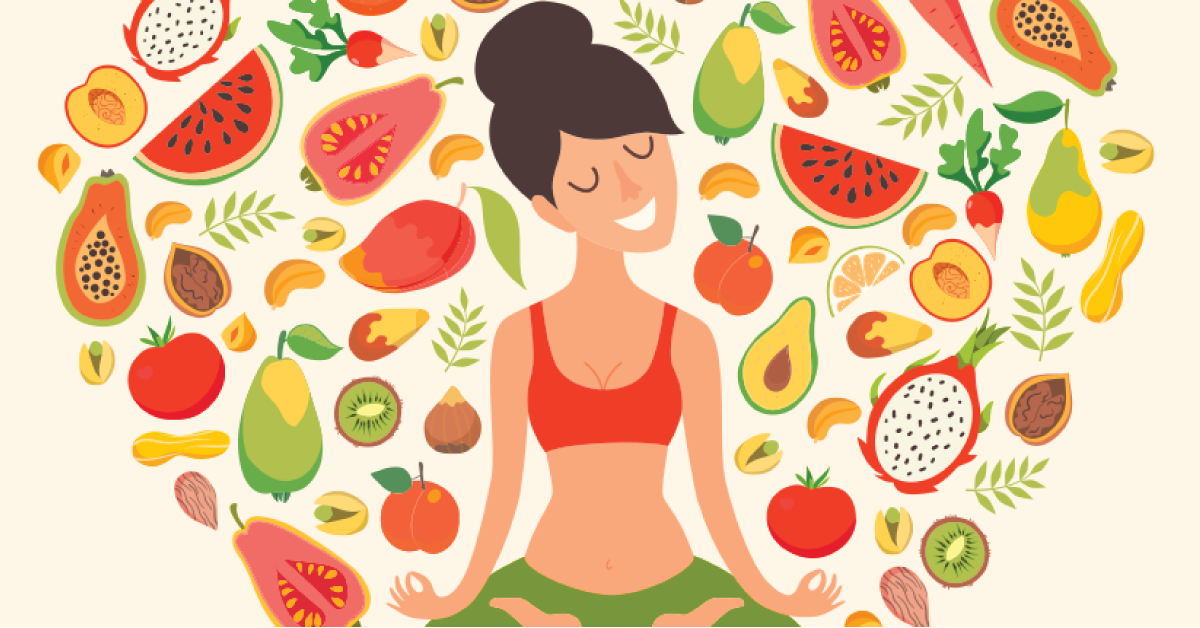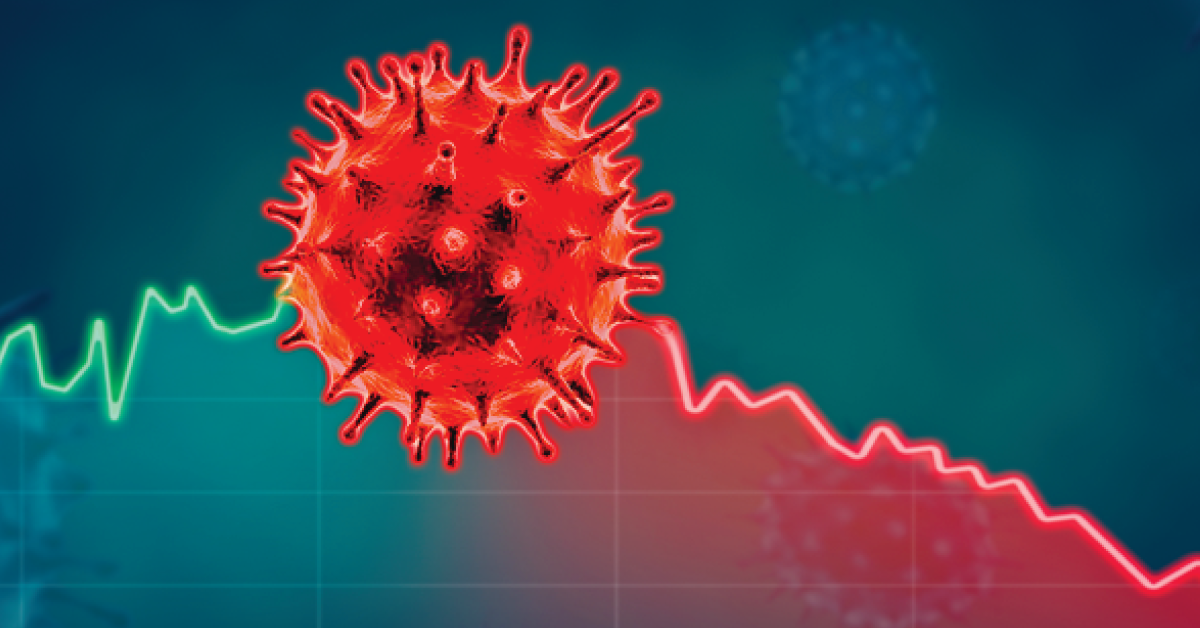
A normal bowel movement is a bliss! Getting up in the morning and seeing a loose and runny stool is called diarrhoea. This is a common ailment that affects the majority of people at least once a year. It is defined as the passage of more than three stools a day. Runny and watery stools are common. Your bowel movements will be loose and running. It is the second most common cause of death in children below 5. The condition is both preventable and treatable. But if not it can be fatal and life-threatening. In simple words, it can be defined as an infectious condition with a loss of water and nutrients. In children, it can even lead to malnutrition. Dehydration is a major complication accompanied by malabsorption. Excessive dehydration can lead to a great loss to your body. Make an online consultation with your general physician to prevent this condition.
Why does Diarrhoea occur?
For this, it’s important to understand the basic physiology of our digestive system. The food from our mouth travels to the oesophagus to reach the stomach. The major portion of digestion occurs in the intestine, the smaller one. This part is also responsible for the absorption of water. Together, the large intestine and small intestine make the food solid. This is majorly the undigested portion. This is removed as stool which is thick and softer. In case of diarrhoea the bowel movement is decreased that means the intestine stops working properly. This leads to less absorption of water and thus runny stools.
What are the 3 types of Diarrhoea?
According to medical sciences, diarrhoea can be divided into 3 clinical types.
-Acute watery
-Acute bloody
-Persistent
Acute watery loose stools, as the name explains, contain a lot of water. The loss of water can cause dehydration. This is a major complication of this condition. Severe dehydration can lead to dryness, sunken skin and less urination. Acute watery stools can make you feel low as well, so consult your family physician as soon as possible.
Acute bloody stools contain blood. This is a dangerous condition as it can be an indication of severe infection. Visit your general physician immediately if you see bloody stools. You must complete the dose given by your doctor.
Persistent diarrhoea is a condition which lasts for longer than 14 days. This is a chronic condition.
Complications of Diarrhoea
The two major complications of diarrhoea are malabsorption and dehydration. If diarrhoea is not treated well it can lead to these complications.
Dehydration is well elaborated by doctors as this is fatal. Dry skin and excessive thirst are common signs of dehydration. Less urination is another problem people face. Dizziness and light-hightedness can make a person feel low. The symptoms of dehydration are different in infants. Infants can show no wet diapers for 3 hrs and dry mouth. No tears while crying and sunken skin. In adults who have following symptoms should visit family physician immediately:
- Continuous high fever
- More than 6 stools a day
- Pain in abdomen
- Stools having pus
Malabsorption is another digestive disorder that is related to absorption of nutrients. Your intestine is not able to absorb nutrients properly. This can lead to malnutrition in children. This could have many reasons such as food intolerance, deficiency of enzyme and damage to mucus wall. Intestine is the area where most of the absorption occurs. During the improper bowel movement, the intestine is the most affected part of the body. If this condition persists for a longer time frequent headaches and dizziness can be seen. The symptoms could be abdominal pain, fever and loss of weight. Muscle wasting and anaemia are other disorders caused by lack of proper nutrition.
Diarrhoea vs dysentery
Diarrhoea and dysentery affect your digestive tract mainly the intestinal system. Diarrhoea has many causes whereas it is believed by many doctors that dysentery is the progressive disorder of bacterial diarrhoea. Apart from that dysentery cannot have a viral cause. Whereas diarrhoea can be caused by viruses as well. Generally the symptoms of diarrhoea and dysentery are the same. Your general physician can easily distinguish between dysentery and diarrhoea by asking about stool. Diarrhoea has wide number of causes which includes :
- Drug induced
- Food allergies
- Sugar
- Alcohol
- Parasites
- Viruses
- Bacteria
Dysentery is caused by bacteria which includes
- Shigella
- E. Coli
- Salmonella
- Campylobacter
The major difference is that the stools are bloody in dysentery whereas a general physician cannot find blood in diarrhoea. Moreover dysentery is accompanied by fever and muscle cramps or abdominal pain. Since dysentery is more severe your general physician will have altogether a different approach for the treatment and diagnosis. The diagnosis includes physical examination and general history about your diet. The diagnosis of dysentery includes history of fever and stool sample collection. The treatment of dysentery includes intake of a lot of electrolytes and fluids. You can avoid solid intake if it’s getting uncomfortable. Moreover your general physician will advise antibiotics like ciprofloxacin or azithromycin. Complete the dose of antibiotics to prevent recurrence.
Food to eat when you have Diarrhoea
The cause of diarrhoea is still uncertain. Eating contaminated food could be a very probable cause especially in this fast paced world. The youth of today are generally ignorant about the kind of lifestyle they live. Over consumption of some food items or having food that is incompatible to your system could be a probable cause of diarrhoea. Any kind of seasonal change or uncooked food could trigger diarrhoea. According to ayurveda imbalance between any of three doshas will lead to diarrhoea. There are certain food items that you should consume if you have diarrhoea. During diarrhoea, there is not just the loss of water but also the nutrients. We need food items that will not only strengthen the body but will also fulfil the nutrients deficiency that is being created. Apart from nutrition, certain food items can regulate bowel movement and improve digestion.
Pomegranate is a nutritional loaded fruit that is commonly used in ayurvedic medicine. This is often used in many home remedies in Indian homes. It is proven that pomegranate rind can improve your condition if you are suffering from diarrhoea.
Ginger and buttermilk have antibacterial and antifungal properties. It relieves the pain in the abdomen and improves digestion. Buttermilk has friendly bacteria which produces acetic acid and destroys harmful bacteria in the stomach. Mix dry ginger and buttermilk, consume this 3-4 times in the day which will provide relief from diarrhoea.
Jeera or cumin seed water has an antidiarrheal effect. This helps to reduce frequent bowel movements during diarrhoea. Roast cumin seeds and make a powder. Add this powder to the water with a tablespoon of honey. Drink this slowly-slowly throughout the day.
Raw bananas are an excellent food to eat during diarrhoea. It is loaded with potassium which helps in digestion as well as replacing the lost nutrients. Raw bananas contain pectin which absorbs water from the intestine. The absorption of water from the intestine helps in creating firmness of the stool. This also promotes good bacteria in your gut!
Bilva fruit has antibacterial and antifungal properties. It is extensively used in diarrhoea and dysentery. It also contains an anti-inflammatory compound called tannis. Take pulp of the fruit, consume this with water. Repeat this after during the day.

